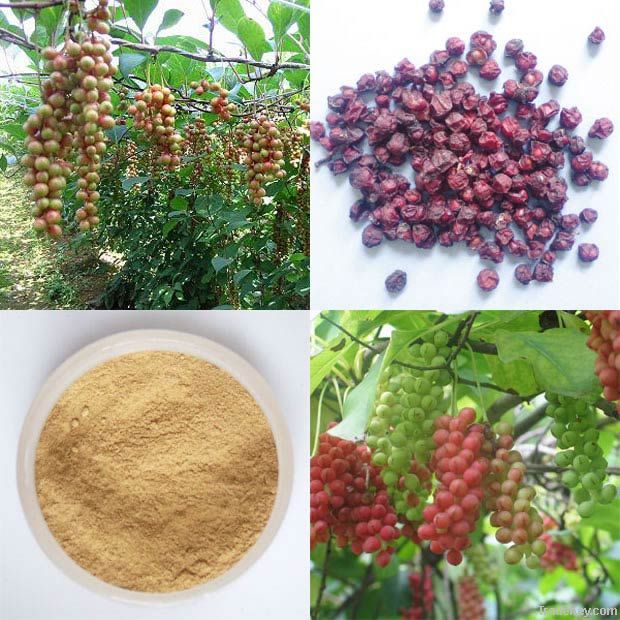Introduction
The classical treatise on Chinese herbal medicine, the Shen
Nung Pen Tsao Ching, described schisandra as a high-grade
herbal drug useful for a wide variety of medical conditions
specially as a kidney tonic and lung astringent. Chinese
herbalists use schisandra for coughs, night sweats,
insomnia, thirst, and physical exhaustion.
Available Specification
Schizandrin >1.5% HPLC
Schizandrin B >1.2% HPLC
Schizandrins ***0% HPLC
Pharmacological function
Useful for the treatment of:
chemotherapy support
common cold/sore throat
fatigue
hepatitis
liver support
stress
Modern Chinese research suggests that lignans in schisandra
regenerate liver tissue damaged by harmful influences such
as viral hepatitis and alcohol. Lignans lower blood levels
of serum glutamic pyruvic transaminase (SGPT), a marker for
infective hepatitis and other liver disorders.
Schisandra fruit may also have an adaptogenic action, much
like the herb ginseng, but with weaker effects. Laboratory
work suggests that schisandra may improve work performance,
build strength, and help to reduce fatigue.
Dose
Schisandra fruit: **6 grams per day.Tincture **4 ml three
times per day.
Chemical Composition
Side effects involving schisandra are uncommon but may
include abdominal upset, decreased appetite, and skin
rash.
Some herbs are known to react with your medication. Please
consult your physician before starting on any herb.
Applications
Pharmaceuticals
Health care food

